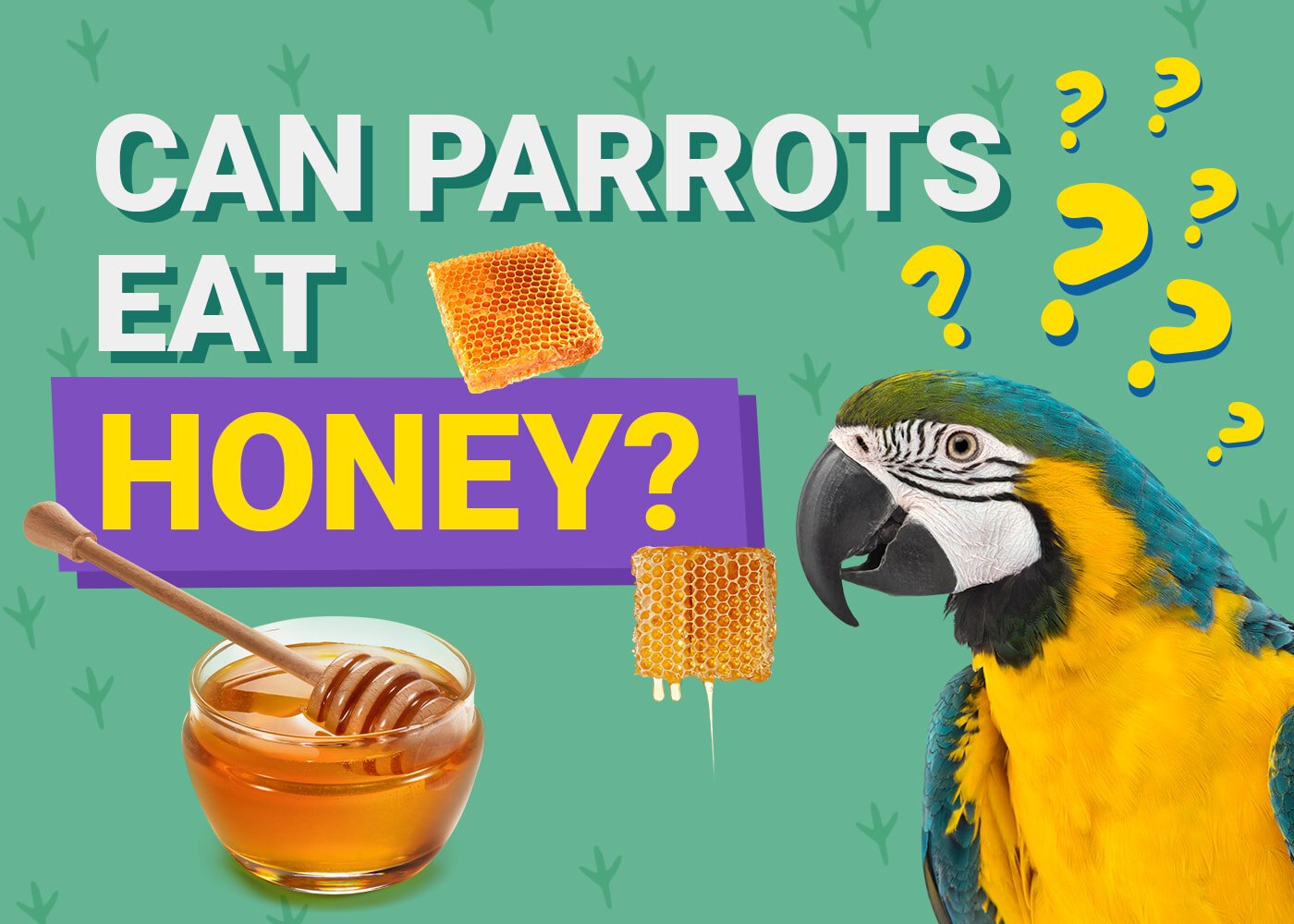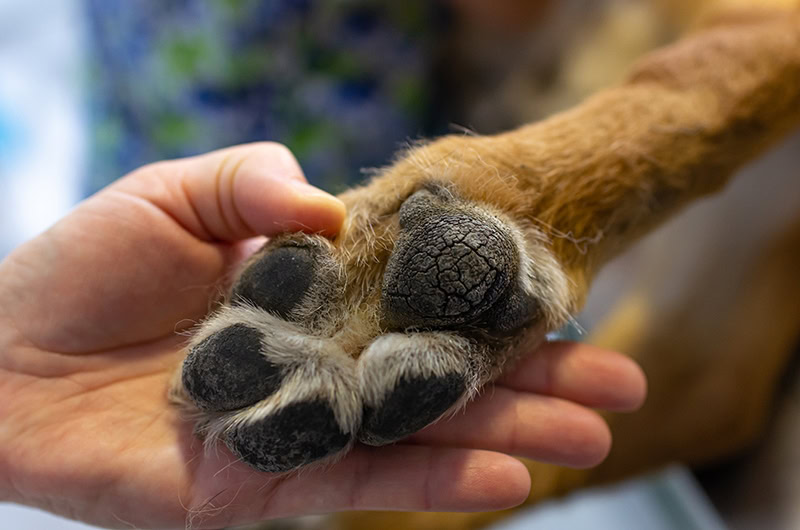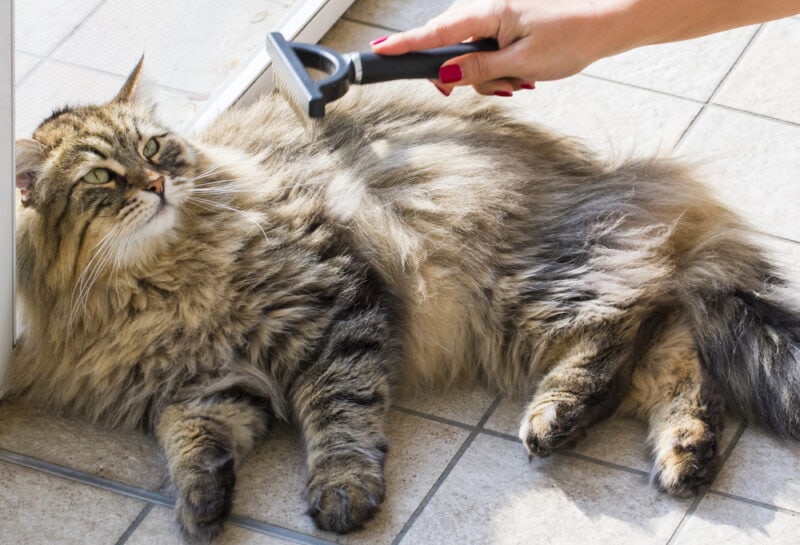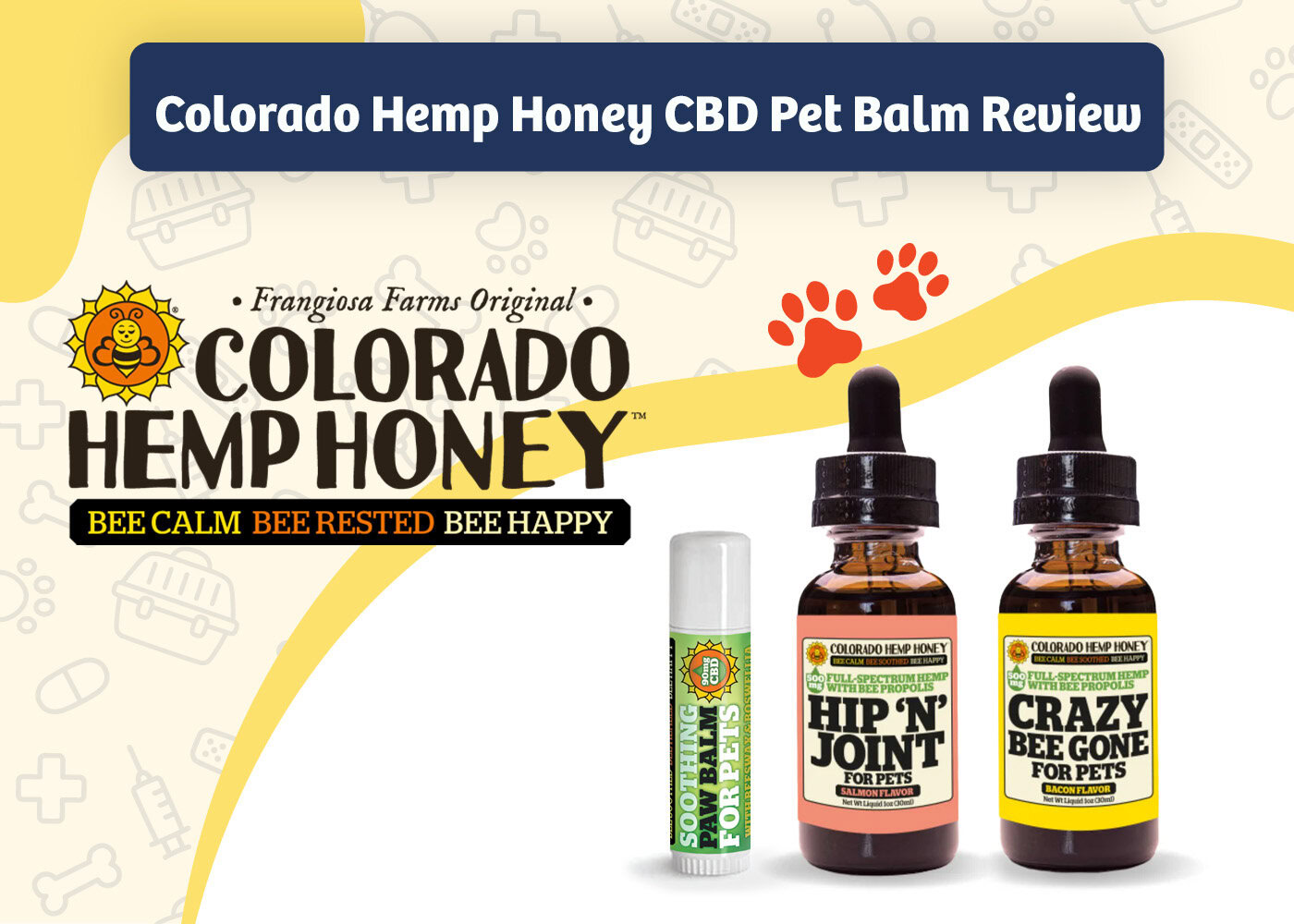VET APPROVED

The information is current and up-to-date in accordance with the latest veterinarian research.
Learn more »Click to Skip Ahead
We all want to share our food-related happiness with our pets, but it’s essential that we first assess whether a food is appropriate to offer. Parrots are incredibly unique and intelligent creatures that have a varied diet.
For one thing, parrots should not eat honey. In its raw form, honey can be associated with contamination from Clostridium botulinum spores, the bacterium that is responsible for the respiratory illness known as botulism, which is why honey isn’t advised for infants. While no reports of honey toxicity exist for parrots, honey is nonetheless not nutritionally appropriate for them as it’s too high in fat, too strangely textured, and not conducive to how they normally eat their food.

Why Parrots Should Not Eat Honey
Honey is a common ingredient in parrot pellet formulations. However, it shouldn’t be offered to your parrot on its own in any form. Raw honey is associated with possible contamination with Clostridium botulinum spores. These spores can germinate and potentially give rise to botulism if ingested or removed from the honey (however, do note that microbes don’t grow in honey, they remain in their spore form).
Clostridium botulinum isn’t a natural occurrence in honey and not something produced by the bees as they make honey; rather, it is caused by contaminants in the environment entering a bee hive and contaminating their honeycombs. The risk of botulism via the consumption is low, but nonetheless relevant for humans (particularly infants). However, no toxicity reports of honey exist in parrots.
There are seven types of toxins in the bacterium; these are designated by the letters A, B, C, D, E, F, and G. Types C, D, and E cause botulism in mammals, birds, and fish. Honey, if contaminated, contains toxin types A & B (which can infect humans).
However, honey is still not recommended for parrots for several reasons, even if it’s pasteurized, boiled, or microorganism-free.
- It is far too high in calories
- Its sticky texture is not conducive to the foods a parrot eats
- Many parrots enjoy holding their food in their claws, and because they can’t do this with honey, they may not appreciate it (or they may end up with sticky, cakey claws)
- Its nutritional profile is not conducive to a parrot’s needs
- There is no empirical evidence of it being healthy for a parrot
It is important to note that though several parrot species naturally do eat flowers and their nectar, they don’t eat honey. Honey is made by bees, not by the flowers themselves. Caution is also warranted for honey from specific flowers (for example: Rhododendron spp. nectar, which causes mad honey disease in humans) even though the honey of these flowers hasn’t been tested on parrots.
In short, there are far too many risks and no noteworthy nutritional benefits to offering a parrot honey. As such, it’s best to avoid it altogether.
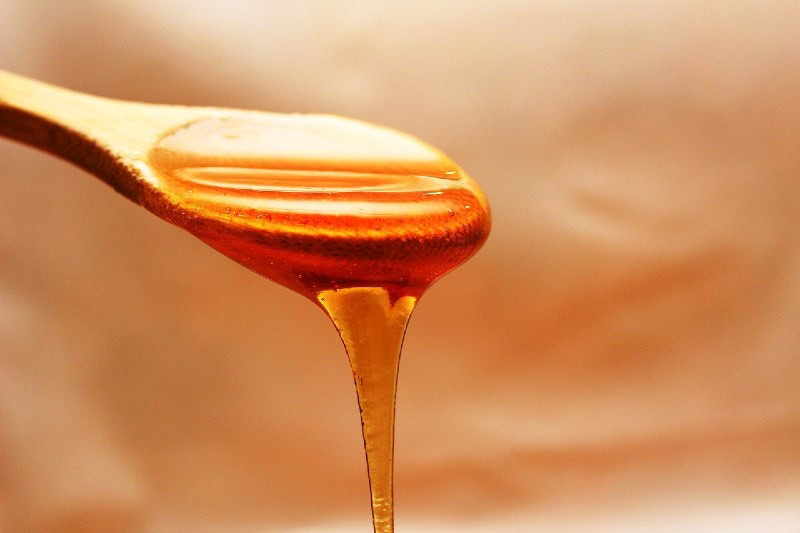
Parrot Nutrition: The Basics
Parrots in the wild eat a varied diet made up of plant and animal matter. As pets, they’ll eat pretty much anything offered to them, even things that aren’t necessarily good for them.
Veterinarians recommend that parrot parents feed their birds a high-quality pellet diet. While this may seem boring to a human, it ensures that the parrot gets everything that they need to stay healthy and strong. Pelleted mixes are intended to provide the correct nutrition for parrots so their owners don’t have to stress out about whether their pets are getting proper nutrition.
Some parrot parents may be drawn to commercially made seed mixes to combat the perceived boringness of pelleted diets, but these usually lack essential nutrients. Seed mixes also tend to be high in fat content and can be dusty.
Some commercial seed mixes include pellets in their blends. When providing your parrot with a pellet and seed mix, it’s essential to watch what they’re eating. Some parrots will eat around the pellets. So, making sure your parrot eats all their food is critical for them to get the correct nutrition.
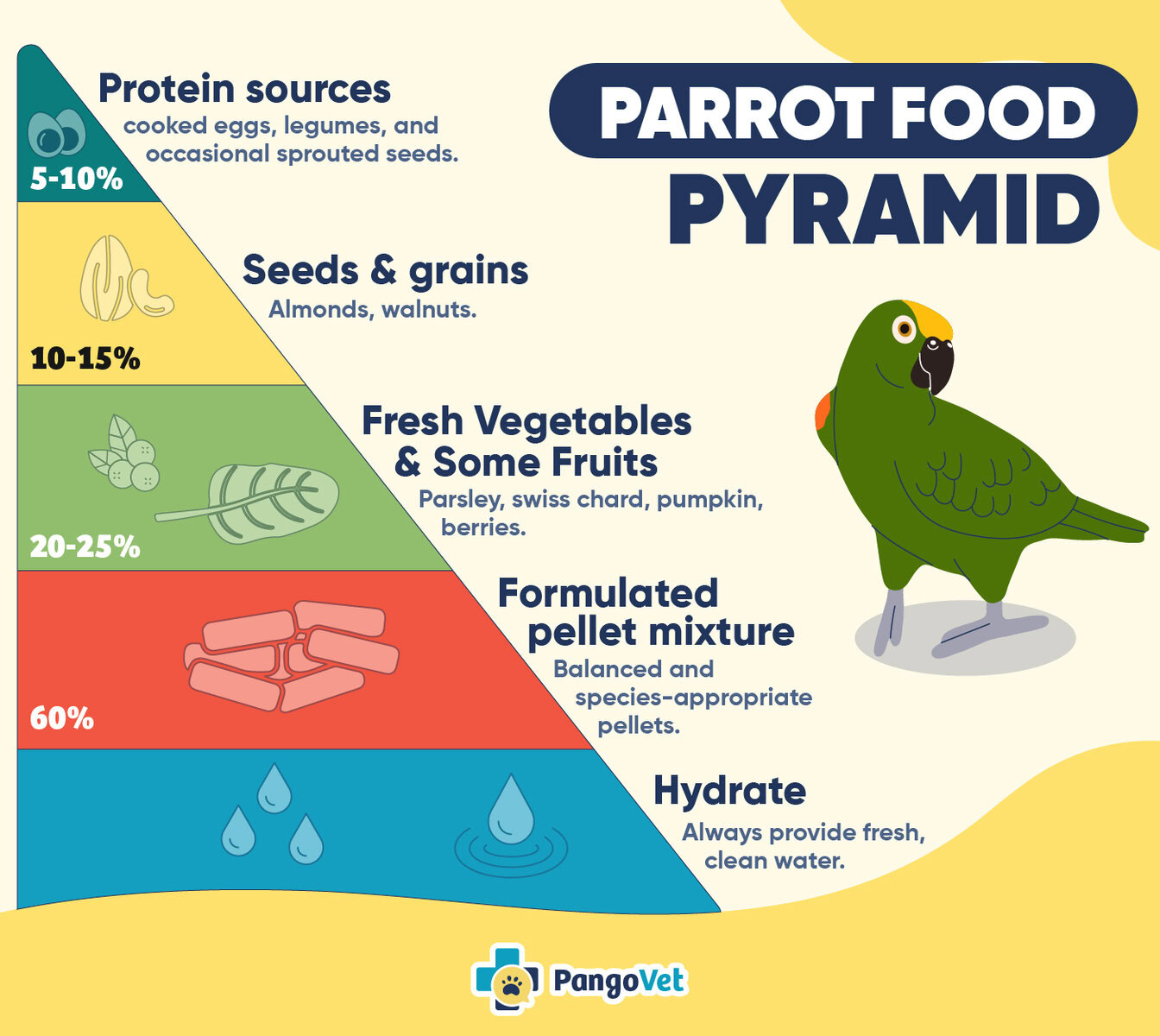

What Human Foods Can I Feed My Parrot?
Parrots can eat various human-grade foods, and many make great treats and supplements to their normal nutrition. In the wild, parrots are foragers and opportunistic omnivores. Fruits, vegetables, and even meat products can all be great additions to your parrot’s diet.
Vegetables can provide essential nutrients and antioxidants. A parrot that’s fed pelleted food will likely be getting these nutrients already, but veggies can be more appetizing supplements that owners can give to their pets.
If you want to add vegetables to your parrot’s meals, safe options include asparagus, beets, leafy greens, bell peppers, winter squash, okra, leeks, broccoli, butternut squash, tomatoes, and courgettes, among others.
Adding fruits to a parrot’s diet can be tasty and healthy, but be careful how much you feed them; fruits are high in sugars in addition to vitamins and antioxidants. Too much of a good thing can cause your parrot to become malnourished.
Parrots can safely consume grapes, citrus fruits, mangoes, pomegranates, bananas, and papayas. They can also consume apples and pears, but only if the seeds are removed because these contain a harmful cyanide compound.
In addition to fruits and vegetables, parrots tend to love nuts. Owners should be careful when feeding these to their birds. All nuts given to parrots should be unsalted, as high quantities of salt can be dangerous or even deadly.
As long as they’re unsalted, cashews, almonds, macadamia nuts, pecans, and walnuts are all safe for parrots to eat. Many of these birds adore peanuts, but these can carry mold that can give your parrot a respiratory infection. If properly inspected peanuts are given at all, they should be shelled.
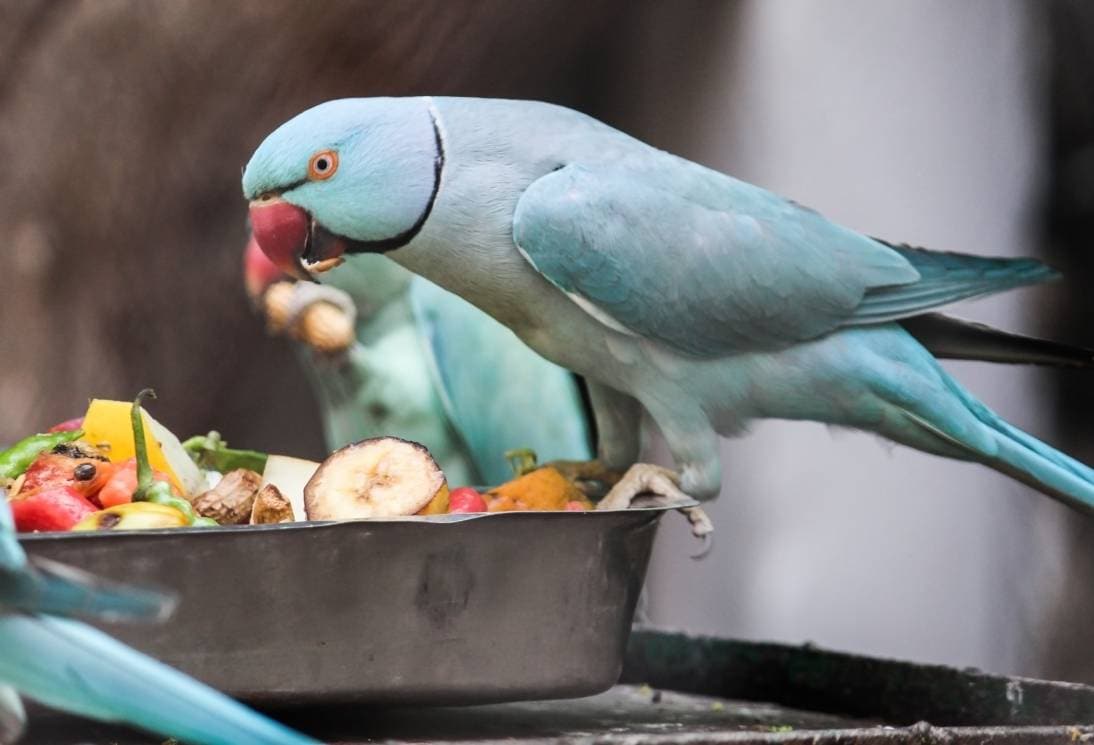
Foraged Parrot Diets
Parrots in the wild are foragers. So, it’s no wonder that many parrot parents have started to consider how they can better replicate a wild diet for their pets. Any foraged foods given to your parrot should be thoroughly washed to ensure that no pathogens can make their way into your bird’s diet.
Parrots can eat various foraged foods, including chickweed, blackberries, hawthorn berries, sloes, sow thistles, and dandelion greens. Dandelion greens are a particularly excellent nutritional source for parrots. Every single part of the plant contains essential nutrients that they can benefit from.
What Foods Are Dangerous for Parrots?
Like with honey, anything containing avocado, chocolate, caffeine, or alcohol should be strictly avoided. These substances are dangerously toxic to birds and could cause a rapid decline and death if ingested. Foods that are fried, salted, or high in fats should also be avoided. These can cause poor long-term health and even death.
Parrots are brilliant and will learn which foods they can and cannot have from their parents in the wild, but as pets, they need their human parents to monitor their food intake and ensure that they don’t eat anything toxic.
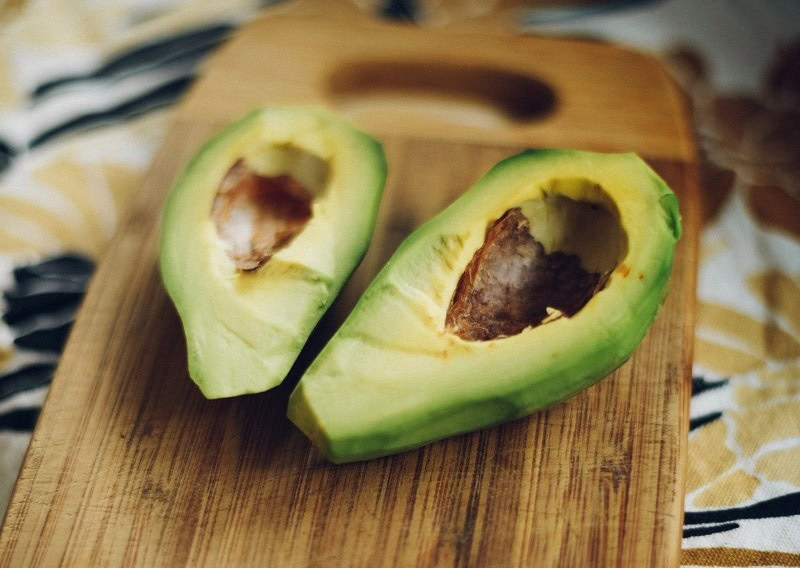
Conclusion
There are so many great options for supplementing your parrot’s pelleted diet. Unfortunately, honey isn’t one of those options, but we hope that you’ve found tasty alternatives. Make sure you check with your vet if your parrot consumes anything that you don’t know is safe for them. Have fun and enjoy delicious snacks with your parrot!
Related reads:
Featured Image Credit: Pixabay
